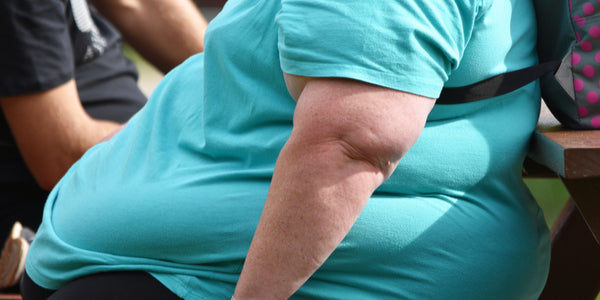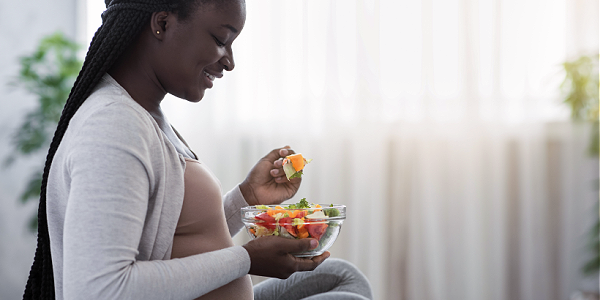
When Margaret started experiencing arthritis pain, she felt she needed to slow down, take it easy to alleviate her discomfort. Somehow, the problem just got worse, and on top of that, she gained more weight. And the more she gained, the more she hurt.
I'm Dr. Caroline Cederquist, giving you the Skinny on Your Health.
Millions of Americans suffer like Margaret and try to avoid inflammation. But reducing overall activity is a recipe for arthritic disaster. The inflexibility and weight gain that follows only make arthritis pain progressively worse.
Research shows that incidence of not just discomfort, but actual disability due to arthritis rises markedly as weight goes up. Heavier people get arthritis more, get it earlier, and experience greater impairments to mobility and activity because of it. Arthritis disability costs among overweight people are staggering.
Yet research shows even minor weight loss has significant impact in reversing disability caused by arthritic conditions.
So there's real hope amid the pain. And if a few committed dietary changes are what it takes to be able to move again, that's a small price to pay for freedom.
Overweight and Joint Pain
It's kind of a cliche - the old grandpa complaining about his "trick knee" or Grandma going on about her "bad back."
I'm Dr. Caroline Cederquist, giving you the Skinny on Your Health.
The truth of the matter is that if Grandma and Grandpa have problems with troublesome joints, they are more than likely overweight, and that excess weight is a big part of the problem.
Researchers studied PAIN in the knee, hip and lower back. Across age, race and gender lines, the more overweight a person was, the more likely they were to be in pain from their joint troubles.
That seems obvious, maybe, that a joint under greater strain from greater weight would be more likely to hurt. Yet researchers find that patients often view their musculoskeletal problem as unrelated to their weight problem.
And as a result, they don't seriously consider losing weight as a way to treat their pain. And that's too bad, because a little weight goes a long way when it comes to straining the joints.
Kidney Stones and Obesity
In case there weren't enough reasons to lose weight, recent urological research has added another: sheer, blistering PAIN!
I'm Dr. Caroline Cederquist, giving you the Skinny on Your Health.
A recent study found a positive correlation between excess body weight and the excretion of the substances that cause kidney stones., Not surprisingly, there was also a HIGH prevalence of overweight and obesity among those who suffered from kidney stones.
And I do mean SUFFERED. Kidney stones are an incredibly painful condition, known to reduce grown men to weeping.
And women who've had them, often say they'd rather give birth than suffer from kidney stones again.
The good news is that there's a pretty simple formula for avoiding them, and it's mostly dietary. Of course, start by generally losing weight, but also:
LOWER sodium intake. Continue normal dairy intake, but limit animal proteins. And drink LOTS of water. The more overweight you are, the more water you should drink to flush out the buildups that cause stones.
You'll have a lot more trips to the bathroom, but it beats a trip to the urologist.
Gallstones and Obesity
Gallstones are a misery worth avoiding. The condition is not life-threatening, but causes more than 800,000 hospitalizations every year, a number that's rising right along with our average weight.
I'm Dr. Caroline Cederquist, giving you The Skinny on Your Health.
Gallstones are a common digestive ailment among Americans, who typically eat a very high-fat diet. The gallbladder stores bile to help us digest fats.
Regularly consuming more fat than our gallbladder can handle results in excess cholesterol that solidifies into gallstones.
In addition, people who have gone on drastic liquid diets to drop weight but then binge on high fat meals can send their gallbladder into spasm, leading to its removal.
If you have recurrent indigestion after fatty meals, upper abdominal pain, nausea, and pain in your back after eating, you might want to ask your doctor about gallstones.
And you might want to lower your risk by reducing the fat in your diet and losing some weight…but do it sensibly. You don't want to avoid gallstones by losing your gallbladder!
Effect of Weight Gain or Loss on Quality of Life
From impairing our body functions to impeding our social interactions, a lot of excess weight is a true burden in many different ways.
I'm Dr. Caroline Cederquist, giving you the Skinny on Your Health.
But researchers find that once people start to lose weight, they tend to forget how bad it was to be heavy, and then comes the slip back to old behaviors.
That's because once we're feeling better, it IS hard to remember just how uncomfortable we felt, how awkward, or tired or distressed we were by our excess weight.
Food, on the other hand, is right here and right now, and we can experience it with all our senses. A hot bowl of fragrant, buttery popcorn is a powerful competitor to the fading memory of aching joints or labored breath.
I have my patients make a list of every reason they want to lose weight and keep it on hand, in their purse or wallet. If they refer to it often, it's a remarkably effective tool for remembering not only what they're working toward, but what they've left behind.







